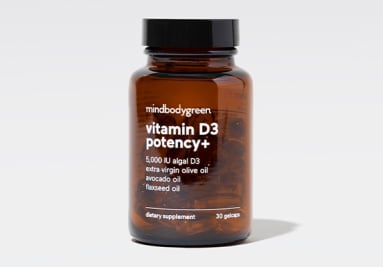
Image by ALTO IMAGES / Stocksy
June 15, 2023
Parkinson’s disease (PD) is a progressive neurological disorder that affects mobility, sleep, speech, memory, and more. The most widely known symptoms are tremors and difficulties with motor function, like walking and making facial expressions.
PD progresses due to the death of dopaminergic neurons (i.e., brain cells that synthesize the neurotransmitter dopamine), partially due to the development of Lewy bodies. Lewy bodies are responsible for damaging DNA and depleting ATP in the brain, which subsequently lead to further cell death, neuronal loss, and reduced ability to produce dopamine.
Advertisement
This ad is displayed using third party content and we do not control its accessibility features.
In the past few years, researchers have discovered that vitamin D’s neuroprotective properties and role in neurotransmitter synthesis may play a part in preventing or even slowing the progression of Parkinson’s disease. Here’s what research says.
The connection between vitamin D & Parkinson’s disease
Lower vitamin D status is consistently associated with Parkinson’s disease.
According to a 2022 Brain Sciences review, approximately 26% of PD patients1 are deficient in vitamin D, while a whopping 69% are insufficient in the essential vitamin. (For perspective: When it comes to U.S. adults overall, 29% and 41%2 are vitamin D deficient and insufficient, respectively.)
Researchers from the Brain Sciences review hypothesize that vitamin D not only helps protect against neurodegeneration but that its depletion is “responsible for the death of dopaminergic neurons” as well.
How vitamin D sufficiency can help prevent Parkinson’s disease
In a 2019 case-control study published in The Egyptian Journal of Neurology, Psychiatry and Neurosurgery, scientists found significant correlations between vitamin D status and both motor and cognitive function in PD patients.
Lower vitamin D levels were linked to lower scores in:
- Motor function
- Mental activity
- Daily living activities (e.g., swallowing, speech, cutting food, handwriting, walking, dressing)
Advertisement
This ad is displayed using third party content and we do not control its accessibility features.
Higher vitamin D levels were linked to higher scored in:
- Working memory
- Attention
- Recall
- Verbal fluency
- Visual perception
How to reach & maintain healthy vitamin D status
Advertisement
This ad is displayed using third party content and we do not control its accessibility features.
The takeaway
In total, approximately 95% of Parkinson’s disease patients are failing to maintain healthy vitamin D levels. While research on vitamin D’s exact role in PD pathways is still ongoing, evidence suggests the essential vitamin plays a big role in supporting dopamine synthesis and neuroprotection.
To reach and maintain truly optimal vitamin D levels, experts suggest increasing your vitamin D intake to 5,000 IU daily. They also agree that the simplest and most effective way to do just that is with a high-quality D3 supplement.


